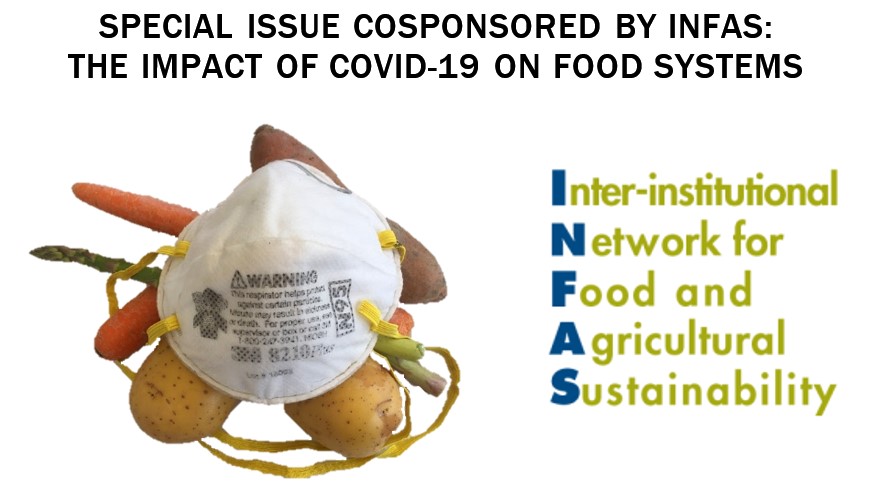Alternative food distribution networks, resilience, and urban food security in Turkey during the COVID-19 pandemic
DOI:
https://doi.org/10.5304/jafscd.2021.102.021
Keywords:
Alternative Food Networks, COVID-19, Pandemic, Turkey, Food Security, ResilienceAbstract
This article explores the potential of alternative food networks (AFNs) for food security and resilience as COVID-19 has raised challenges to the global food supply chain. Pandemic-induced disruptions to conventional food production, distribution, and consumption networks have revealed problems with the global food system and have drawn attention to the re-localization and regionalization of food systems. Lockdown and mobility restrictions have also disrupted the availability, quality, and stability of food. We evaluate how AFNs have responded to these challenges in a non-western context through a case-study approach informed by participant observation and semistructured interviews. After examining the multiple factors that have been critical to the emergence and expansion of AFNs in Turkey since the mid-2000s, we argue that these food distribution networks have aimed to address food security, environmental sustainability, and farmer livelihoods in complementary ways. We provide a timeline of state-led measures in response to COVID-19 in Turkey as we consider their impacts on food distribution systems and access in urban areas. We then compare two AFNs: a food community working within a participatory guarantee system, and a consumer cooperative that connects producers and consumers in urban areas. Although the two AFNs faced initial challenges due to disruptions in delivery services and lockdowns, they have been able to continue their services and address increasing demand. They also provided special solidarity packages for those adversely affected by the economic impacts of COVID-19. By building on the existing networks and relationships of trust between consumers and producers, and the capacity and willingness of producers to adapt to the new regulatory environment, the two AFNs have been able to continue their activities and start new initiatives.
Metrics

Downloads
Published
How to Cite
Issue
Section
Categories
License
The copyright to all content published in JAFSCD belongs to the author(s). It is licensed as CC BY 4.0. This license determines how you may reprint, copy, distribute, or otherwise share JAFSCD content.











